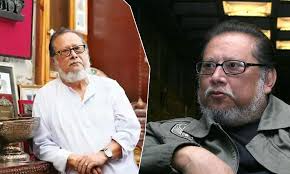Ratan Thiyam, first NSD graduate from Manipur who went on to become its director, passes away

Imphal, July 23, 2025 — India’s theatre community lost a giant today. Ratan Thiyam, the visionary director, playwright, and cultural icon, passed away at the age of 77. He died in the early hours of Tuesday at RIMS Hospital in Imphal. For several years, he had battled long-term complications related to COVID-19.
Thiyam was more than a stage artist. He was a cultural force who changed the course of Indian theatre. As the first person from Manipur to graduate from the National School of Drama (NSD), he later went on to lead the same institution. His life’s work inspired generations and gave Manipuri traditions a global voice.
A Journey from Imphal to National Recognition
Born in 1948 in Imphal, Ratan Thiyam was drawn to the arts from a young age. Surrounded by Manipuri dance and music, he developed a deep appreciation for cultural heritage early in life. In 1974, he graduated from NSD in New Delhi, where he studied under the legendary director Ebrahim Alkazi.
After his graduation, he returned to Imphal and founded the Chorus Repertory Theatre in 1976. This company became one of India’s most respected theatre institutions. Set in the green hills of Manipur, the theatre space reflected Thiyam’s belief in artistic harmony and self-discipline.
Leading the “Theatre of Roots” Movement
Ratan Thiyam played a key role in the “Theatre of Roots” movement during the 1970s and 1980s. This movement aimed to reconnect Indian theatre with its traditional forms. Thiyam believed modern theatre should draw power from local languages, rituals, and music. He didn’t see tradition and modernity as opposites—they were partners in storytelling.
His plays like Chakravyuha, Uttar Priyadarshi, and Andha Yug used mythology to comment on modern conflicts. These works blended slow, deliberate movement with chanting, stylized gestures, and vivid lighting. His production of Chakravyuha in 1984 earned global praise and won the Fringe First Award at the Edinburgh Festival in 1987.
A Legacy of Excellence and Influence
Thiyam’s contributions extended far beyond directing. In 1987, he became the Director of NSD, making history as the first person from Manipur to hold that position. He used this role to promote diverse Indian art forms. Many of his students went on to shape Indian theatre and cinema.
From 2013 to 2017, he served as Chairperson of NSD, and earlier held the position of Vice-Chairman of the Sangeet Natak Akademi. Throughout these roles, he focused on encouraging regional voices and preserving cultural memory.
His work received several prestigious awards:
- Sangeet Natak Akademi Award (1987)
- Padma Shri (1989)
- Kalidas Samman (1997)
A Spiritual and Political Artist
Thiyam’s theatre was not just visual—it was philosophical. He often explored themes of war, injustice, and the search for truth. His slow, deliberate style drew from martial arts, meditation, and classical Indian performance traditions.
He trained his actors in both movement and stillness. Scenes were rich in symbolism, and silence was used as powerfully as sound. Audiences often described his plays as visual meditations—slow yet deeply moving.
He also spoke openly about issues of freedom, identity, and responsibility. For Thiyam, theatre was a sacred tool for reflection and change. He believed artists should hold up a mirror to society while grounding themselves in spiritual ethics.
A Nation Pays Tribute
As news of his passing spread, tributes poured in from across the country.
Manipur Chief Minister N. Biren Singh called Thiyam “a revered son of Manipur and a national treasure.” He noted that Thiyam’s work helped carry the voice of the Northeast to global audiences.
A. Sharda Devi, President of BJP Manipur, praised his unique achievements. She pointed out that he was the only person from the region to lead NSD and highlighted his role in shaping cultural identity.
Many in the theatre world echoed these sentiments. Several artists credited Thiyam with reshaping how India views its own cultural expressions. His work not only entertained—it awakened minds and hearts.
A Farewell with Full Honours
Thiyam’s body was taken to Chorus Repertory Theatre in Imphal, where the public paid their final respects. Floral tributes were offered by theatre lovers, artists, and admirers. His funeral will be held according to traditional Meitei Hindu customs.
Even as he departs, his theatre remains. His vision lives on in the work of his students and the stories he brought to life. Every stage across India echoes a part of his influence.
Curtain Falls, Legacy Lives
Ratan Thiyam redefined Indian theatre. He showed that cultural depth and artistic brilliance can go hand in hand. By blending the local with the universal, he created plays that spoke to the soul.
Though the curtain has fallen, his spirit remains strong. His art continues to inspire, educate, and uplift. Ratan Thiyam (1948–2025) may have left the stage, but the story he told will never end.






